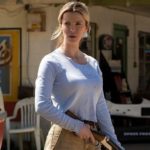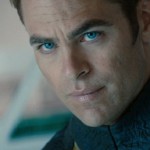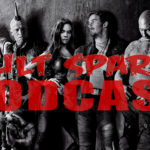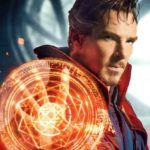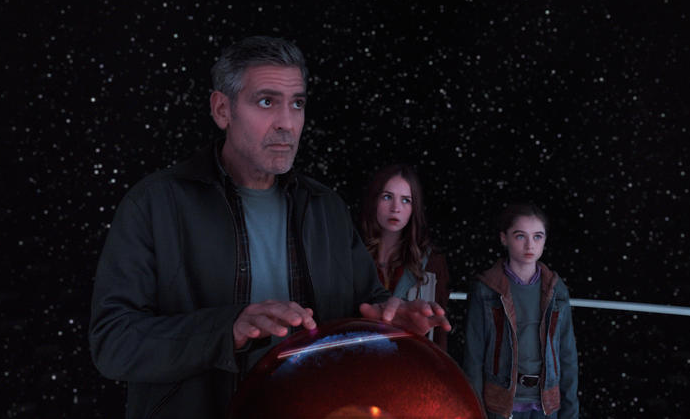
For its first two-thirds, Tomorrowland had me. The two young actors driving the film, 25-year-old Britt Robinson and 12-year-old Raffey Cassidy, are remarkable (especially Cassidy), and I enjoyed watching the film bounce breezily from one mystery to the next. All mysteries must have an ultimate reveal though, and Tomorrowland's is a dud, sinking the final act with a resounding "Wait, that's it?!" Expect tons of spoilers here on out, as I take a closer look at the film's ending and ponder some story options that may have made for a more satisfying film.
In Tommorowland, George Clooney plays a genius inventor named Frank Walker who at some point built a machine designed to predict the date the world will end. Perpetually powered and showing images of a ruined Earth, the machine sits in Tomorrowland, a secret city in another dimension that was once populated by scientists, poets and thinkers of all kinds but has since fallen on hard times. David Nix (Hugh Laurie) rules over Tomorrowland while Frank has been banished to the regular old United States. However, Frank has tapped into the machine's signal and knows that it's still showing a 100 percent probability the the world will end within the next 58 days. That is until a spunky space-loving teenager named Casey (Robinson) shows up at his door, and that probability briefly flickers below 100 percent. Earth's survival has a chance! So Frank, Casey and their robot companion Athena (Cassidy) head back to the great futuristic city to convince Nix the world is not yet doomed and attempt to save mankind.
Okay, you got all that? Good. Up to this point, I was fine with the story being told. The movie sets Casey up as a "chosen one," an eternal optimist who believes no matter had bad things have gotten, there are still enough people who believe in and will work for a better tomorrow. It's hinted over and over again that she's the key for unlocking humanity's potential. So whatever she does at the end of the movie needs to be inspirational enough to take that 100 percent probability readout on Frank's machine and steer it significantly back in the other direction. Except nothing like that happens. Casey's big moment is that she's the one who figures out that the machine isn't just predicting the future, it's creating it by beaming its images into the minds of every living human. It's one giant tachyon-powered self-fulfilling prophecy.
So what can Casey, Frank and Athena do about it? Had I been writing the script (as opposed to director Brad Bird, Damon Lindelof and Jess Jensen) I'd have looked for a way to send a better signal out into the world instead the one of death and destruction currently being broadcast. As the appointed "chosen one," Casey needs to do something so forward-thinking and inventive that it ends up reversing the course of human history, even if by happy accident. (Just figuring out what the machine does isn't nearly a big enough payoff for the character.) And it doesn't even have to be a big thing! It just has to be a small act of ingenuity that could multiply chaos theory-style throughout people's minds without them even knowing it. The film needs that one progressive action from Casey that could symbolically hint at a bright revival for both Tomorrowland and the rest of the world.
Instead, the movie resorts to blowing shit up. Frank and Nix get into a cross-dimensional fist fight while Casey and Athena battle a giant robot and attempt to destroy the machine. It's the least inventive direction this story could have gone in its last half-hour and seems antithetical to the "big ideas" message it conveys for the rest of its running time. Not that those things couldn't have played a part in the finale — it is a summer action movie, after all — but for a movie that demands we start thinking outside of the box, Tomorrowland seems awfully trapped by sci-fi movie conventions during its disappointing climax.

